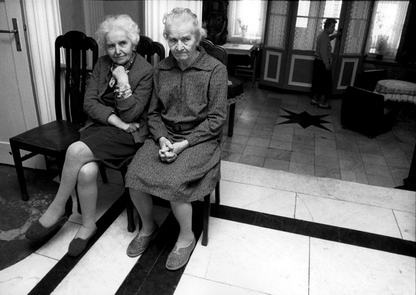
In fact, whatever their individual circumstances might be, Christians in long-term care seem to be happier than non-Christians in long-term care.
If this is true, shouldn’t all nursing homes put some major emphasis on feeding the spirit? At least as much as they do, say, entertaining those in their care, and reminding them of the good ol’ gone-but-not-forgotten days?
Certain that researchers have studied this issue, and that the scientific literature would confirm my anecdotal observations, I did a scholar.google.com search for validating reports.
And was blown away by what I found. Which is to say: precisely nothing. It would seem that no one has even looked into this very obvious issue.
I started out searching for “Christianity” and “elderly,” figuring I’d find some studies on the impact of the former on the latter in long-term care settings. Astoundingly, just 11 articles popped up, none even remotely related to my quest.
I changed “Christianity” to “religion” and found 75 articles. But “religion” was mainly buried in lists of words such as “cognition, stress, mental health, personality, and sexuality.” I found nothing addressing my specific interest – at least, nothing in English. There was one report on the impact of Buddhism on blood pressure in northern Thailand, and another of the spiritual well-being of the elderly in France. But that was about it.
Yet do a search for “elderly” and “depression,” and nearly 1200 listings instantly appear.
Why has this very obvious issue been overlooked by researchers? Are they all atheists unwilling to even consider Christianity and its impact on the spirit? Or does that description better suit those holding the purse strings?
 RSS Feed
RSS Feed